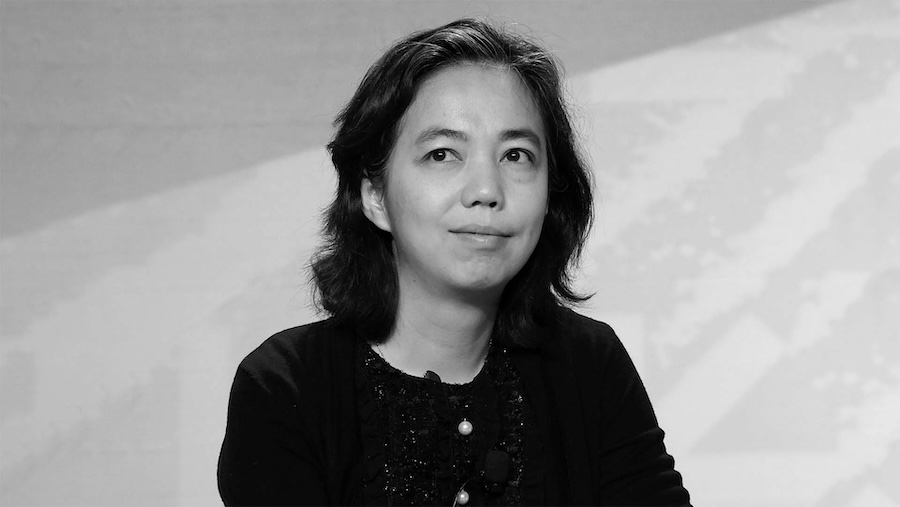
by Editor BGF | Aug 24, 2025 | Global Alliance for Digital Governance
At the recent Ai4 conference, two of the world’s most influential AI voices—Geoffrey Hinton, the “godfather of AI,” and Fei-Fei Li, the “godmother of AI”—offered starkly different visions for the future of artificial intelligence. Hinton warned of losing control and even suggested building a “Mother AI” with protective instincts, while Li firmly countered that humans must remain in control from the very beginning, championing a model of human-centered AI. Their debate underscores a growing consensus: we need a radical rethink of AI development and deployment. Rather than bolting on safeguards after the fact, policies must embed ethics, accountability, and human dignity into AI systems from the start. For BGF and AIWS, this reflects our central mission: to ensure that AI strengthens democracy, respects human values, and builds an AI World Society where all humans win.
Please see full here: https://www.inc.com/rebecca-hinds/why-ai-experts-say-we-need-a-radical-rethink-of-the-technology/91229674

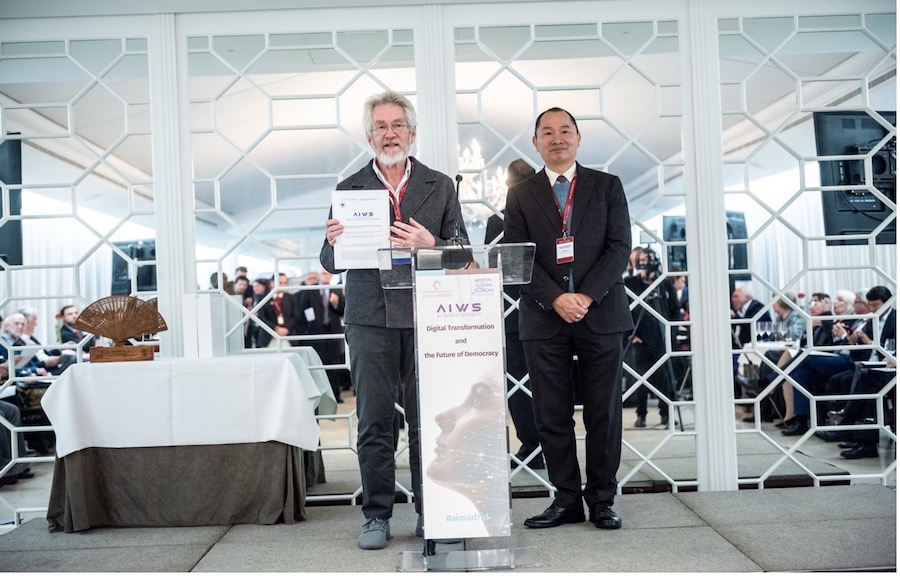
by Editor BGF | Aug 17, 2025 | News
Next week, a delegation of Vietnamese leaders who report directly to the Politburo of the Party of Vietnam will visit Boston for high-level discussions with members of the BGF–AIWS Family.
The meetings, to be held at Harvard Business School, Harvard Kennedy School, MIT, and the Harvard University Faculty Club, will focus on:
- AIWS Government 24/7 – advancing continuous, AI-assisted democratic governance.
- AIWS Digital Assets – building trusted, ethical, and human-centered digital economies.
- S.–Vietnam Relations – strengthening partnerships for innovation, education, and peace in the Age of AI.
This dialogue reflects the Boston Global Forum’s mission to connect global leaders, scholars, and innovators in shaping policies and frameworks that enhance democracy, ethics, and humanity in the AI era.

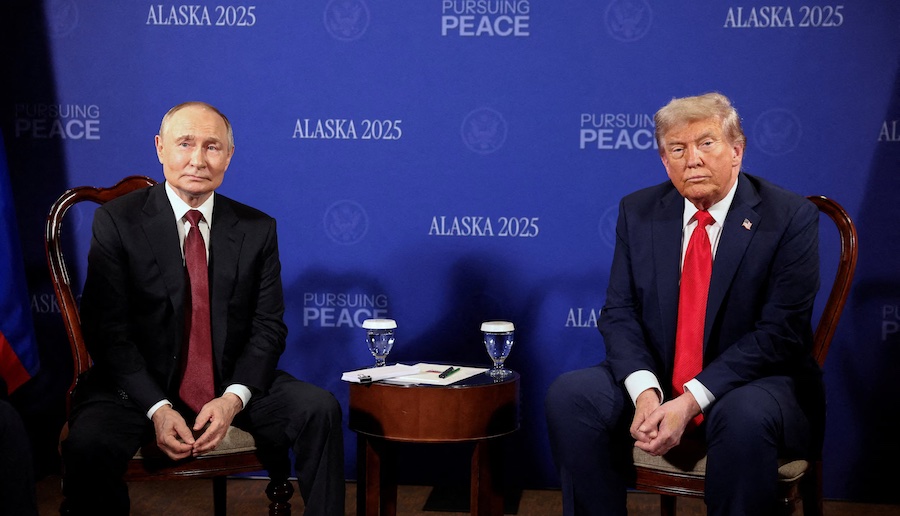
by Editor BGF | Aug 17, 2025 | News
On the Trump–Putin Meeting in Alaska (Aug 15, 2025) and the Upcoming Trump–Zelensky Meeting in Washington (Aug 18, 2025)
Boston, August 17, 2025
The Boston Global Forum (BGF) recognizes the significance of recent high-level diplomacy between U.S. President Donald Trump, Russian President Vladimir Putin, and the upcoming talks with Ukrainian President Volodymyr Zelenskyy.
While the Alaska summit on August 15 did not yield a ceasefire, it opened a channel of renewed dialogue. The announcement that the U.S. and Europe may extend robust security guarantees to Ukraine reflects a potential pathway toward peace and long-term stability. At the same time, European leaders have reaffirmed their unwavering support for Ukraine’s sovereignty and territorial integrity, insisting that no peace agreement can be built on coercion or forced concessions.
On August 18 in Washington, President Trump will meet with President Zelenskyy, joined by European leaders, in what could become a pivotal step toward ending the war.
The Boston Global Forum’s Perspective: Stop the War to Save Lives
The Boston Global Forum calls for a peace process centered on humanity, ethics, and justice, in line with the AI World Society (AIWS) Standards and Values:
- Stop the War, Save People
Every day the war continues, innocent lives are lost on both sides. BGF urges leaders to prioritize the protection of civilians above all else.
- Dialogue with Dignity
Peace must respect Ukraine’s security and independence. Any agreement must be equitable, rooted in truth, and aligned with democratic principles.
- Inclusive Diplomacy
Ukraine must be included in the negotiations, not pushed to the margins. Solutions cannot be imposed; they must be built in partnership with those who endure the war.
- Ethics and Humanity as the Foundation of Peace
Guided by AIWS Values, BGF advocates for a peace framework that integrates human dignity, democracy, and compassion as the foundation of a lasting solution.
The Boston Global Forum urges all parties to seize this moment of dialogue to advance a just and sustainable peace. The war must end—not for the sake of power, but for the sake of humanity.

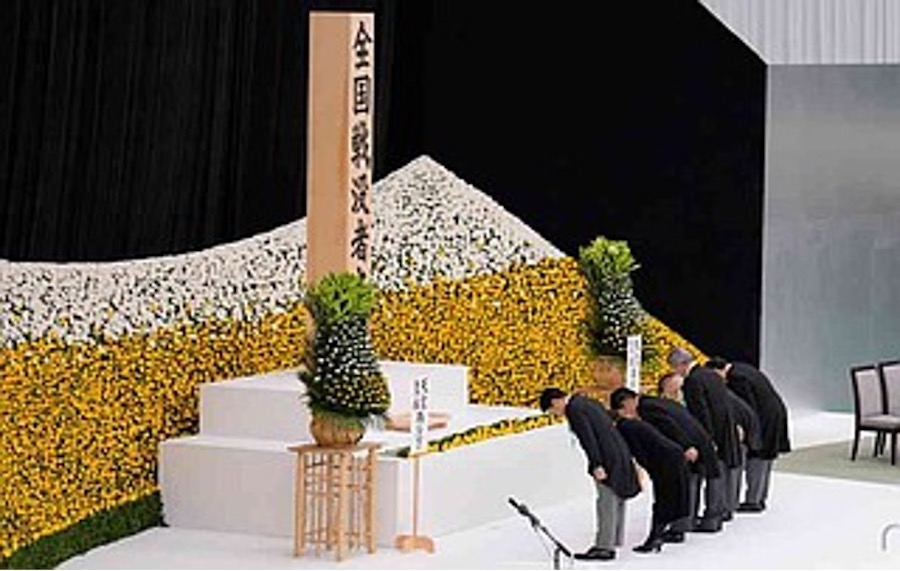
by Editor BGF | Aug 17, 2025 | Shinzo Abe Initiative for Peace and Security, News
Japan paid tribute Friday to more than 3 million war dead as the country marked its surrender that ended World War II 80 years ago, as concern grows about the rapidly fading memories of the tragedy of war and the bitter lessons from the era of Japanese militarism.
Prime Minister Shigeru Ishiba expressed “remorse” over the war — the first time a Japanese leader has used the word in a Aug. 15 address since former premier Shinzo Abe shunned it in 2013.
Ishiba called the war a mistake, but did not mention Japan’s aggression across Asia or apologize.
MOMENT OF SILENCE, PEACE PLEDGE AND CHRYSANTHEMUM FLOWERS
“We will never repeat the tragedy of the war. We will never go the wrong way,” Ishiba said. “Once again, we must deeply keep to our hearts the remorse and lesson from that war.”
He vowed to pass his peace pledge to next generations.
In a national ceremony Friday at Tokyo’s Budokan hall, about 4,500 officials and bereaved families and their descendants from around the country observed a moment of silence at noon, the time when Emperor Hirohito’s surrender speech began on Aug. 15, 1945. Participants later offered chrysanthemum flowers for the war dead.
Please see full here: https://www.hotsr.com/news/2025/aug/17/japan-marks-80th-anniversary-of-wwii-surrender-as/

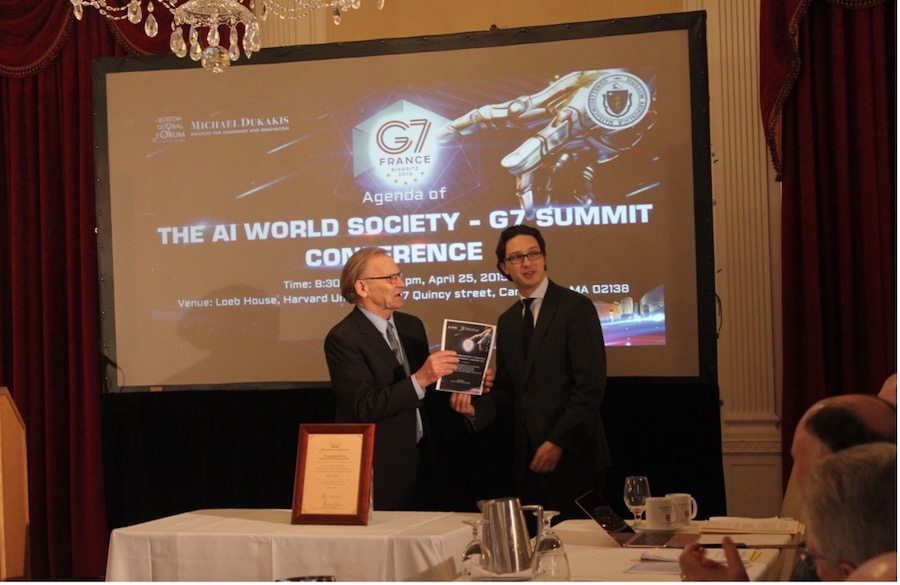
by Editor BGF | Aug 17, 2025 | News
Looking back on the past two decades, my enduring friendship with Tuan Anh Nguyen stands out as one of the greatest personal rewards of my professional life. Our relationship, forged through years of collaboration, has matured into something both deeply meaningful and intellectually enriching. It rests securely on a foundation of mutual trust, lively intellectual exchange, and a shared vision for a world ever more interconnected and compassionate. I treasure not only the warmth of our personal connection but also my abiding admiration for Tuan’s remarkable leadership, particularly as the guiding spirit behind the Boston Global Forum.
When we first established the Boston Global Forum in my Kennedy School office in 2012, my view of its potential was rather local in scope. My hope was to tap the unrivaled intellectual energy of Greater Boston—a region blessed with a constellation of world-class colleges and universities. I imagined drawing together the area’s scholars, policymakers, and thought leaders, creating a forum through which we could address pressing international challenges.
But if, at that inception, Tuan’s vision exactly matched my own, it quickly took on a new and far broader ambition. Almost immediately, he began to expand the Forum’s reach beyond the local and even national spheres, envisioning an institution that would serve as a catalyst for genuine international dialogue and partnership. He started with the inclusion of contributors from Vietnam and then facilitated a steady influx of voices and participants from around the world. Japan became represented, not only by diplomats and policymakers but also by respected scholars. Europe soon joined the conversation. Tuan’s efforts brought Vaira Vīķe-Freiberga, the former President of Latvia, into the Forum. That opened the door for our participation in the influential Riga Conference. This annual convocation in Latvia gathers leading experts, academics, journalists, and entrepreneurs to address key issues facing the transatlantic community.
The momentum did not stop there. Thanks to Tuan’s unique ability to forge high-level relationships, we found ourselves in dialogue with Japanese Prime Minister Shinzo Abe and influential Japanese ministers, and, through further outreach, with senior representatives of the United Nations and the Atlantic Alliance. Each new partnership broadened our scope and deepened our influence. One of the most striking milestones came in 2023, when Tuan, on behalf of the Boston Global Forum, addressed an audience of 100,000 people at the ceremony to celebrate the 70th birthday of India’s spiritual leader. Amma. He presented her the Boston Global Forum’s World Leader for Peace and Security Award. The event coincided with the holding of the C20 meeting in India—a testament to how far the organization had come from its Boston roots. Shortly afterward, Tuan spearheaded an agreement with the Vatican on ethical issues relating to artificial intelligence, culminating in the extraordinary moment of his audience with Pope Francis. The pace has not let up; in just the past year, the Boston Global Forum has convened sessions in the major world capitals of Tokyo and Paris, the latter highlighted by Tuan’s meeting with President Emmanuel Macron of France.
These developments have been transformative, not only elevating the global profile of the Boston Global Forum but also dramatically amplifying its ability to shape important conversations on the world stage. And one thing is abundantly clear to me: Tuan’s journey has no finish line. His relentless optimism and drive ensure that the Boston Global Forum will continue to grow in reach and impact. I look forward, with anticipation, to witnessing the new frontiers he and the Forum will cross in the years ahead.

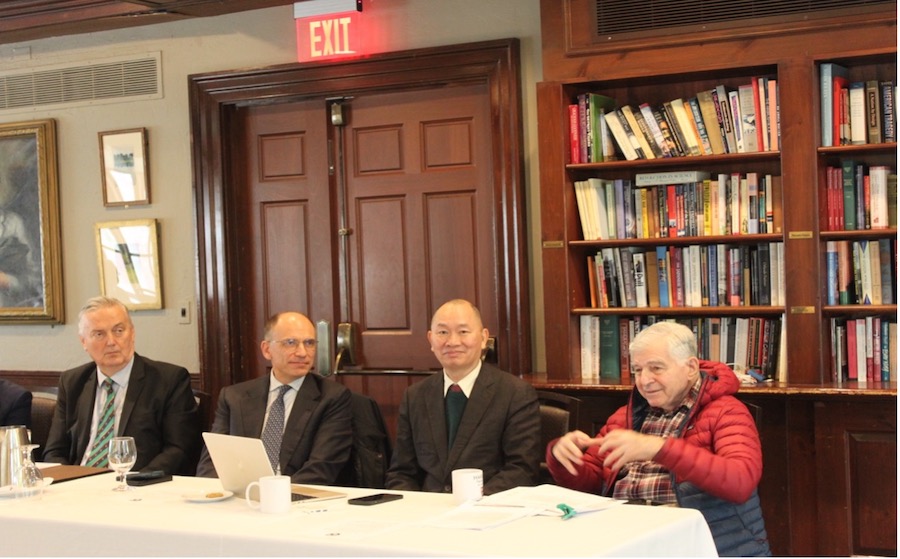
by Editor BGF | Aug 17, 2025 | News, Shaping Futures
The Trump-OpenAI AI partnership, announced earlier this month, marks a seismic shift in how the U.S. government leverages artificial intelligence to modernize operations, reduce costs, and enhance national security. This groundbreaking collaboration, formalized in August 2025, secures access to OpenAI’s ChatGPT Enterprise for all federal agencies at a symbolic cost of $1 per agency annually. The initiative aligns seamlessly with the administration’s broader AI Action Plan, which prioritizes infrastructure investment, regulatory streamlining, and global AI leadership, positioning the U.S. as a frontrunner in the AI race.
Please see full here: https://www.ainvest.com/news/trump-openai-ai-partnership-catalyst-government-productivity-ai-infrastructure-investment-2508/

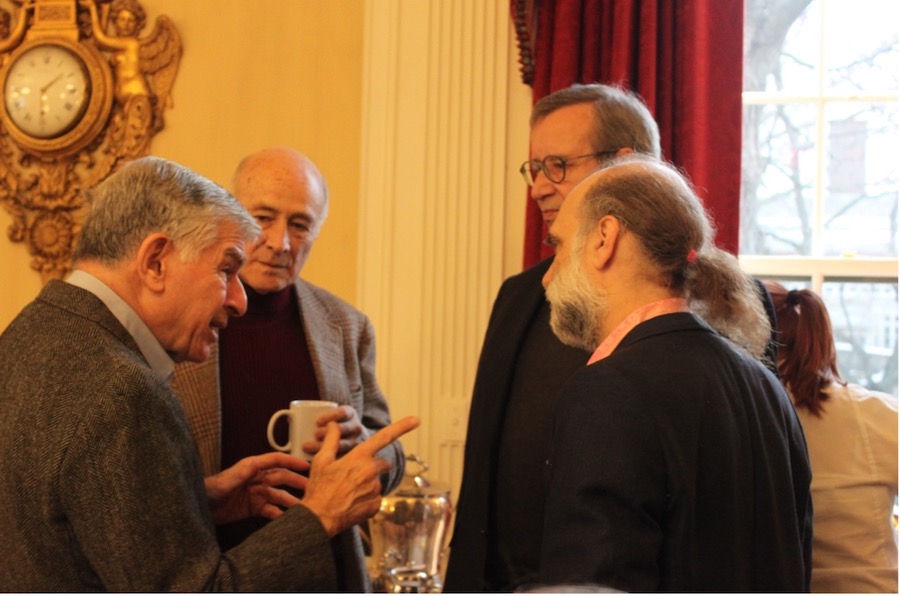
by Editor BGF | Aug 17, 2025 | Global Alliance for Digital Governance
U.S. authorities are secretly tracking shipments of advanced AI chips from prominent manufacturers such as Dell, Super Micro, Nvidia, and AMD to prevent their illegal diversion to China. This initiative reflects President Donald Trump’s strategic effort to gain a competitive edge over China’s tech market by imposing stringent controls on the export of critical artificial intelligence (AI) technology.
Trump has not only blocked American firms from selling AI chips to China but has also implemented a covert tracking mechanism to ensure compliance with these restrictions. According to a Reuters report, “U.S. authorities have secretly placed location tracking devices in targeted shipments of advanced chips they see as being at high risk of illegal diversion to China, according to two people with direct knowledge of the previously unreported law enforcement tactic.” This move underscores the administration’s heightened focus on safeguarding sensitive technology amid escalating U.S.-China tech rivalry.
While the government’s tracking efforts are limited to “select shipments under investigation,” the full scope of this practice remains unclear, as Reuters was unable to determine the extent or the specific agencies involved. However, the report identified potential partners, including the Commerce Department’s Bureau of Industry and Security, which oversees export controls and enforcement, alongside Homeland Security Investigations and the FBI. This multi-agency approach highlights the complexity and sensitivity of the operation, aimed at curbing the flow of cutting-edge AI technology to a geopolitical competitor.
https://reason.com/2025/08/15/trumps-tracking-of-ai-chip-shipments-exposes-flaws-in-his-export-control/

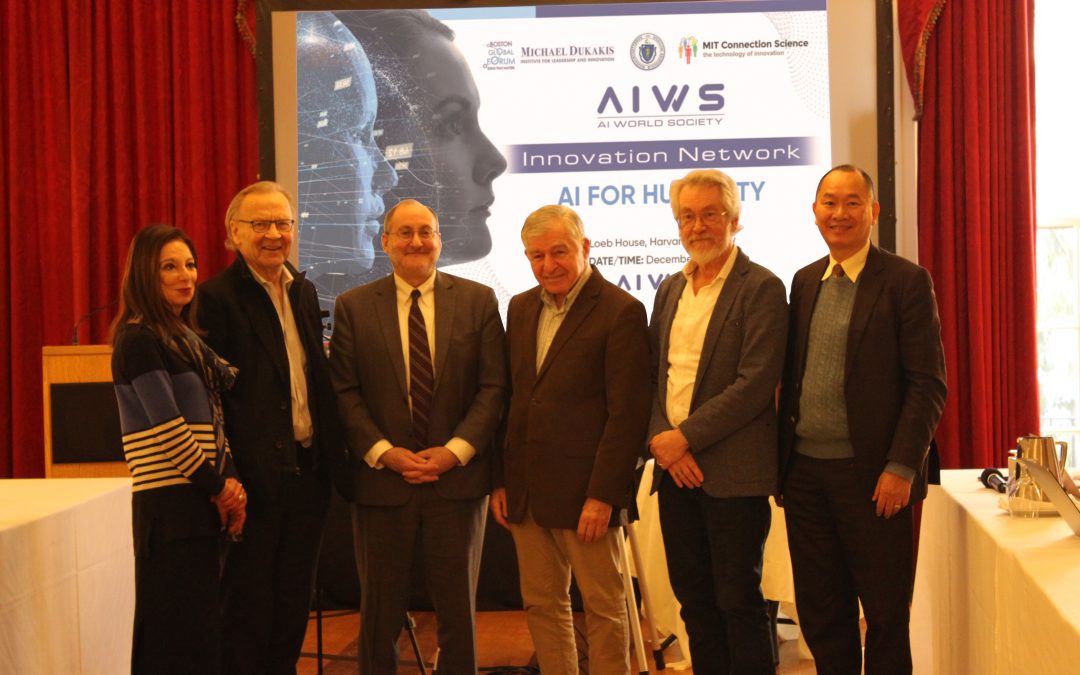
by Editor BGF | Aug 14, 2025 | News
Boston, August 14, 2025
Boston Global Forum (BGF) and AI World Society (AIWS) today officially announced the signing of the BGF–AIWS Family Charter and the establishment of the BGF–AIWS Family in Boston, marking a new milestone in uniting global leaders, thinkers, and innovators under shared values of peace, enlightenment, and responsible AI development.
This Charter represents the official establishment of a global community of leaders, thinkers, and innovators guided by ethics, innovation, and compassion, committed to shaping a better future in the Age of AI.
The Charter was signed by Governor Michael Dukakis, Co-founder and Chair of BGF, and Nguyen Anh Tuan, Co-founder and Co-Chair of BGF, establishing the framework for a global community committed to advancing AI for the common good.
Key Provisions of the BGF–AIWS Family Charter:
- Article 1 – Composition: Defines the members of the BGF–AIWS Family, including founders, members of the BGF–AIWS Board of Directors, award recipients, members of various boards such as the Executive Board, Board of Thinkers, Global Enlightened Leaders Board, AIWS Digital Assets Board, AIWS Brands and Values Board, members of the Enlightenment in Action Alliance (EAA), the Michael Dukakis Institute, the Shinzo Abe Initiative, and AIWS Music Ambassadors for Humanity.
- Article 2 – Other Members: Outlines how individuals not listed in Article 1 can become members through at least two years of voluntary contributions and by upholding the Family’s values and ethics.
- Article 3 – Recognition and Termination: Explains the process for confirming new members and the grounds for terminating membership if core values are violated.
- Article 4 – Nature: States that the BGF–AIWS Family is not a legal entity but a community bound by love, respect, and noble shared values.
The BGF–AIWS Family brings together founders, members of the BGF–AIWS Board of Directors, recipients of the World Leader for Peace and Security Award and the World Leader in AIWS Award, leading thinkers, innovators, and cultural ambassadors, including the Michael Dukakis Institute and the Shinzo Abe Initiative.
Governor Michael Dukakis stated:
“The BGF–AIWS Family is not just an organization – it is a global community bound by trust, respect, and the commitment to making AI serve humanity.”
Nguyen Anh Tuan added:
“By establishing the BGF–AIWS Family Charter, we are laying the foundation for a network of leaders and visionaries who will work together to realize the AI World Society.”
The Charter affirms that the BGF–AIWS Family is not a legal entity, but a network united by love, respect, and shared noble values, committed to supporting each other and advancing initiatives that benefit humanity.
Read the full BGF–AIWS Family Charter here
About Boston Global Forum (BGF)
Founded in 2012, Boston Global Forum is a think tank and high-level policy center bringing together leaders and experts to address global issues, with a focus on AI governance, peace, and security.
About AI World Society (AIWS)
Founded in 2017, AIWS aims to shape a world with a society model where AI is developed and applied in ways that enhance human dignity, democracy, and prosperity.
Press Contact:
Boston Global Forum
Email: [email protected]
Website: www.bostonglobalforum.org
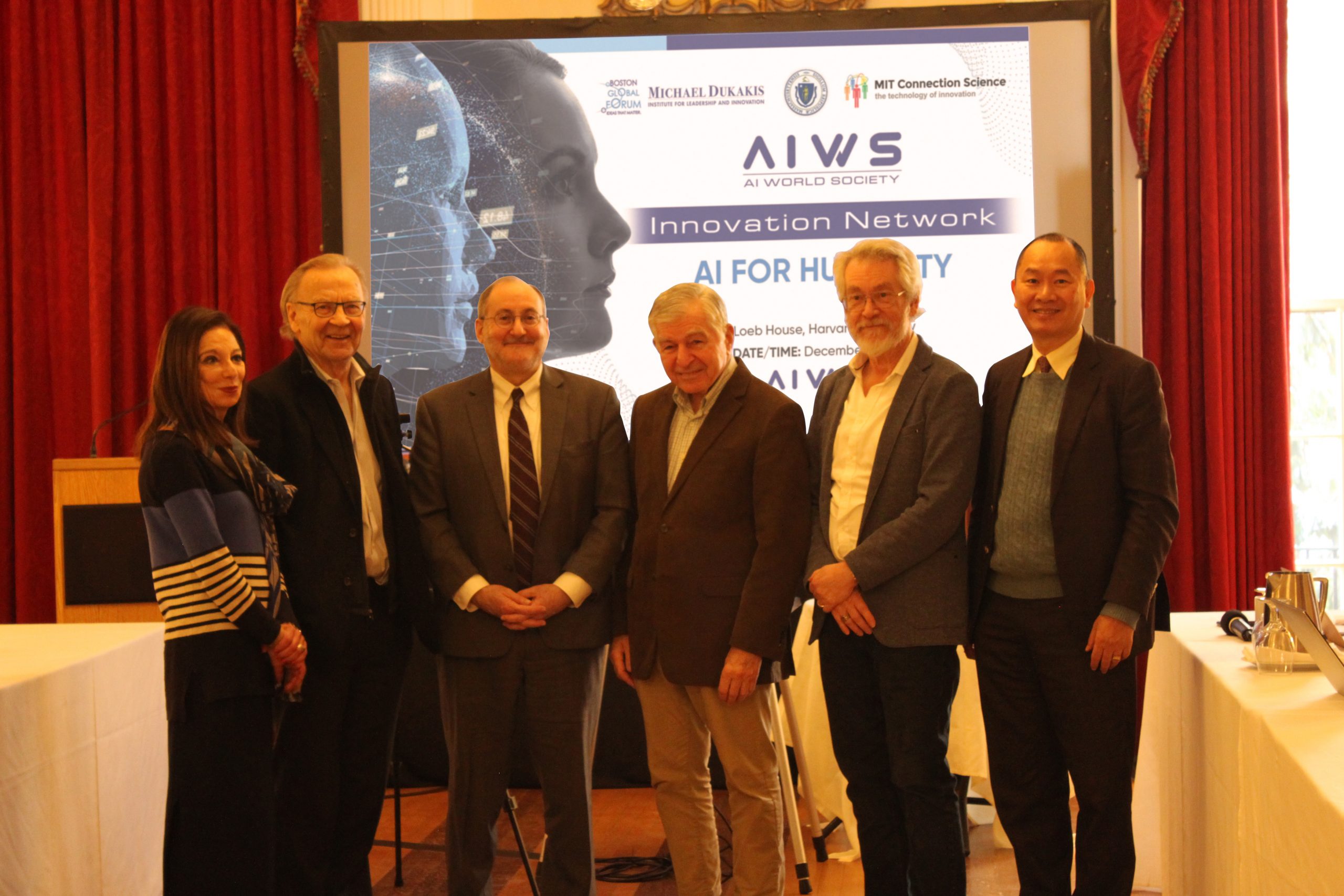
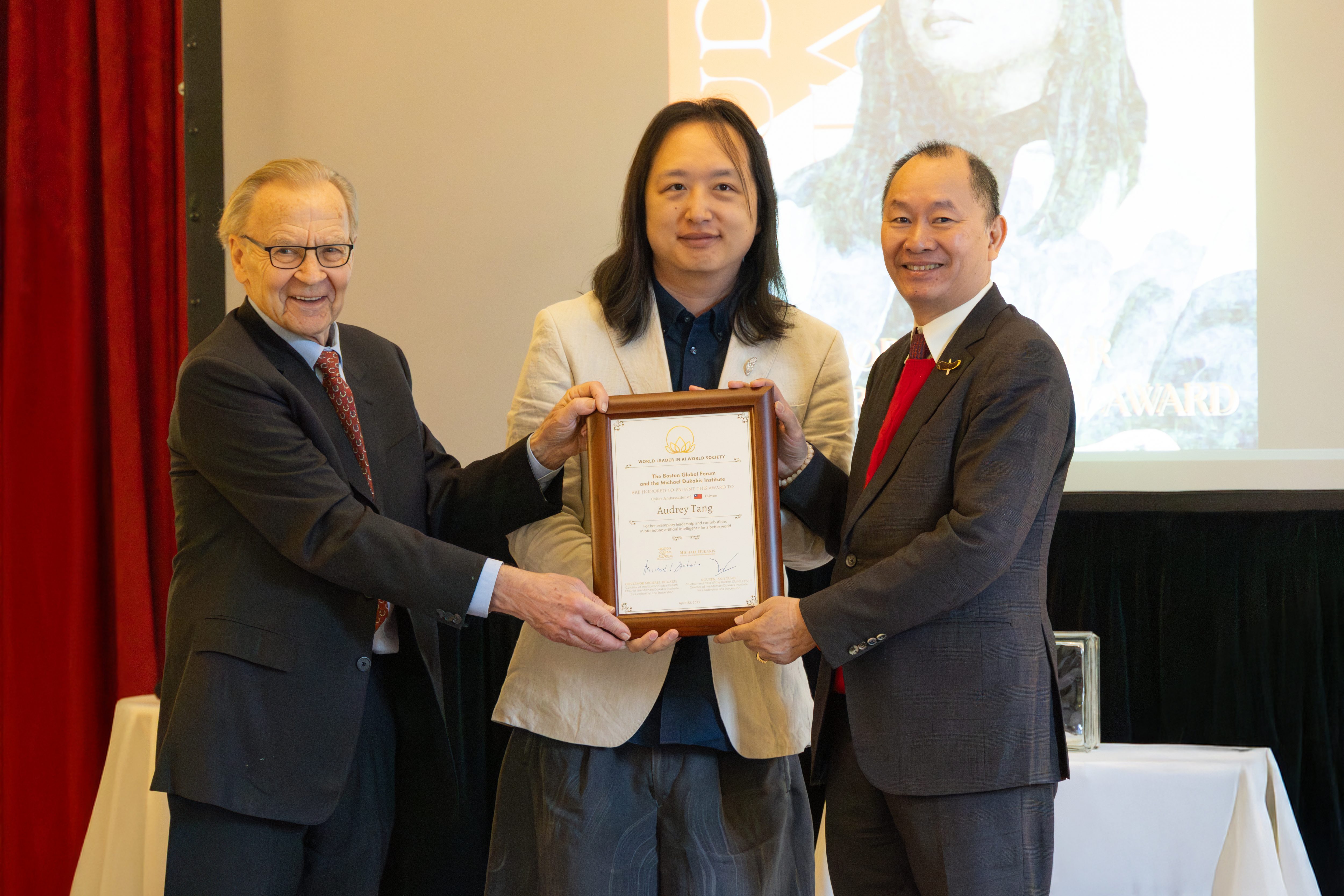

by Editor BGF | Aug 14, 2025 | Statements, News, Publications
(BGF-AIWS Family)
Date Signed: August 14, 2025 – Boston
Signatories:
Governor Michael Dukakis – Co-founder and Chair, Boston Global Forum
Nguyen Anh Tuan – Co-Founder and Co-Chair, Boston Global Forum
Article 1. Composition of the Boston Global Forum (BGF) – AI World Society (AIWS) Family
The Boston Global Forum (BGF) – AI World Society (AIWS) Family includes:
1. Founders of Boston Global Forum (BGF) and AI World Society (AIWS).
2. Members of the Boston Global Forum (BGF) – AI World Society (AIWS) Board of Directors.
3. Distinguished individuals honored with the World Leader for Peace and Security Award, the World Leader in the AI World Society (AIWS) Award.
4. Members of the Executive Board.
5. Members of the Board of Thinkers.
6. Members of the Global Enlightened Leaders Board.
7. Members of the AI World Society (AIWS) Digital Assets Board.
8. Members of the AI World Society (AIWS) Brands and Values Board.
9. Members of the Enlightenment in Action Alliance (EAA).
10. Members of the Michael Dukakis Institute.
11. Members of the Shinzo Abe Initiative.
12. AI World Society (AIWS) Music Ambassadors for Humanity.
Article 2. Other Members
Those not in the above categories may become members of the BGF–AIWS Family if:
1. They have voluntarily contributed efforts, intellect, or financial resources to BGF–AIWS continuously for at least two years and wish to be members.
2. They do not exploit the reputation or brand of BGF–AIWS for personal financial gain.
3. They do not damage the reputation of BGF–AIWS.
4. They respect and uphold the ethical standards and noble values of BGF–AIWS.
5. They love, respect, and are willing to assist other members of the BGF–AIWS Family within their capacity.
Article 3. Recognition and Termination of Membership
– Individuals meeting all criteria will receive a recognition letter from the Chair of BGF confirming their membership.
– Members who violate clauses 2, 3, or 4 of Article 2 will receive a notice from the Chair of BGF terminating their membership.
Article 4. Nature
The BGF–AIWS Family is not a legal entity, but a community bound by love, respect, and shared noble values.
Signed on August 14, 2025 in Boston
Governor Michael Dukakis
Co-founder and Chair
Boston Global Forum |
Nguyễn Anh Tuấn
Co-founder and Co-Chair
Boston Global Forum |
| Signature: |
Signature: |













